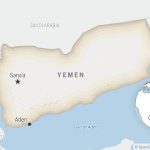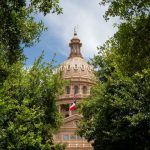The Centre for Journalism Innovation and Development has slammed the Governor of Niger State, Mohammed Bago, for ordering the closure of Badeggi FM Radio and the revocation of its broadcasting licence.
In a statement issued and signed by CJID’s Deputy Director of Journalism Programme, Busola Ajibola, on Sunday, the centre expressed deep concern over what it called “an act of executive overreach and an outright abuse of state powers.”
It further described the move as “a grave assault on press freedom and a direct contravention of the Nigerian Constitution.”
PUNCH Online reports that the directive was made public on Friday, August 1, 2025, by the Chief Press Secretary to the governor, Bologi Ibrahim, who disclosed that the privately owned radio station was also marked for demolition and that its owner would be profiled by state authorities.
CJID warned that such action is not within the powers of a state governor and that “the responsibility to regulate and revoke the license of a broadcast station rests exclusively with the National Broadcasting Commission (NBC) and not on a state governor,” echoing the position of the Minister of Information, Mohammed Idris.
The organisation linked the shutdown of Badeggi FM to a “disturbing pattern of intimidation against journalists” in Niger State under Bago’s administration, listing previous incidents tracked by its Press Attack Tracker.
Among such incidents were the November 2023 assault on Mustapha Batsari of Voice of America and the repeated detention of the People’s Daily correspondent in January and April 2025.
CJID also stated that Niger State ranked 11th on its recently released Subnational Openness Index, a ranking it said reflects “one of Nigeria’s hostile environments for journalists and independent media.”
“The unilateral order by the governor constitutes an attack on the right of the people of the state to be informed and the right of the broadcast station to carry out its lawful duties of informing the public,” the statement read.
“Any grievances against the station’s content or alleged unethical conduct should be directed to the National Media Complaints Commission (NMCC), otherwise known as the National Ombudsman or to the NBC through the proper legal channels,” it added.
CJID also accused the state government of “using state security agencies to harass the media” as a distraction from “the pervasive insecurity ravaging the state.”
It demanded an immediate reversal of the governor’s directive, urging security agencies in Niger State to “reject illegal orders and cease the harassment of journalists.”
“A free press is not an adversary to a functioning government; it is a fundamental pillar of democratic accountability,” the statement concluded.









